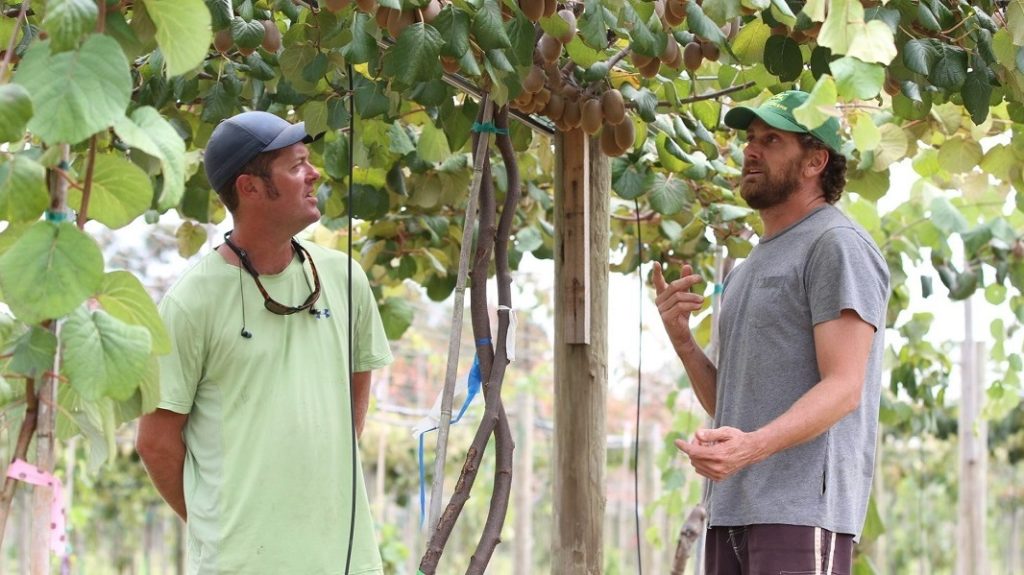Women’s Fund of Greater Birmingham names Melanie Bridgeforth new CEO

A new leader will take the helm at the Women’s Fund of Greater Birmingham next month following the retirement of six-year President and CEO Jeanne Jackson. A fifth-generation Alabamian, Melanie Bridgeforth will assume the role of CEO for the organization who’s mission is to help create change for women and their children through advocacy, collaboration, and philanthropy. Bridgeforth joins The Women’s Fund from VOICES for Alabama’s Children, where she has served as Executive Director since 2013. Previously, Bridgeforth was Alabama’s Government Relations Director for the American Heart Association. She also took her talents to a national level, serving with the U.S. Department of Health and Human Services in Washington, D.C. and on numerous national boards. She has spent her entire professional career lifting up and influencing sound policy decisions on behalf of the state’s most vulnerable populations. “Melanie is a captivating leader,” noted board chair Leslie Carlisle, who also served on the search committee. “From our very first meeting with her, we were excited by her vision, her energy and her record on behalf of populations we care deeply about.” Bridgeforth — a University of Alabama graduate with Master of Social Work and a Bachelor of Arts in Psychology — led a transformation of VOICES public policy platform while strengthening the nonprofits’ overall reach, visibility, and impact over the past six years. She also helped increase sustained funding by doubling the operating budget during her tenure and was instrumental in attracting support for Alabama initiatives from regional and national funders. “Melanie’s enthusiasm for our mission is truly infectious, and her successes at VOICES and elsewhere give us full confidence she is the right person to build on the marvelous momentum established over the past eight years by Jeanne Jackson and TWF’s dynamic team,” said Lisa Engel, Lisa Engel, immediate past chair of the board and chair of the nine-person search committee comprised of corporate and community leaders. She is a founding member of the board of Partnership for America’s Children, and she is on the national steering committee for the KIDS COUNT network, an advisory council of the Annie E. Casey Foundation. Current and past board memberships include Preschool Partners, Project Horseshoe Farm and the Chemical Addictions Program. Bridgeforth is a member of the Montgomery Rotary Club, the Junior League of Montgomery, as well as Alpha Kappa Alpha Sorority, Incorporated. Speaking of her appointment, Bridgeforth volunteered, “The work of The Women’s Fund is essential to helping vulnerable families in Greater Birmingham and beyond secure a brighter economic future. I am honored to be asked to lead a mission focused so squarely on creating change that multiplies and an organization that uniquely combines philanthropy, advocacy, and research.” Bridgeforth continued, “Partnering with the dynamic board, staff and stakeholders at VOICES for Alabama’s Children has been a genuine privilege, and I am grateful that my work there has prepared me so well to build on the great work already being done at The Women’s Fund.” Bridgeforth begins her tenure with The Women’s Fund in late March 2018.
Two Alabama bills to lower penalties for marijuana possession up for debate

Two Alabama lawmakers are looking to move marijuana legislation in the state forward. Montgomery-Republican state Sen. Dick Brewbaker and Birmingham-Democrat state Rep. Patricia Todd have both filed bills in the state legislature to be debated by House and Senate Judiciary Committees on Wednesday. Under existing law in the state, any person who knowingly sells, distributes, or brings into the state more than 2.2 pounds of cannabis is considered a trafficker and can be sentenced to a minimum of three years imprisonment and a $25,000 fine. Brewbaker’s SB51, filed earlier in the year, would adjust the minimum amount needed to be convicted of trafficking to 10 pounds. Brewbaker hopes his legislation will keep young people from being convicted of major felonies. “No one is talking about legalizing possession of marijuana, but I haven’t talked to anybody who thinks hanging felonies on college kids is a great idea because that follows them around for the rest of their lives” he told AL.com. Todd’s bill, HB272, seeks to change the amount needed in to be convicted of unlawful possession of marijuana, and the punishment’s inflicted upon those who break the law. As the law stands today, anyone who possesses cannabis for personal use can be charged with a Class A misdemeanor, resulting in a jail sentence of up to one year and up to $6,000 in fines. A second time offender could be charged with a Class D felony, and sentenced to up to five years in prison, with at least some of that time being served in a community corrections facility. Todd’s bill would add a lower tier of punishments, and would require possession of two or more ounces of marijuana in order to be convicted. The bill also changes sentencing for possession of one ounce or less to a violation, with fines that would not appear on a person’s criminal record. A first or second offense of unlawful possession of marijuana would be punishable by a fine not over $250 and a third offense would result in a violation with a fine of $500 or less. The bill however, makes no provisions for edible derivatives of a cannabis plant. “This is not as bad as alcohol, we don’t want people to use. But it costs the state a lot of money to enforce the possession law,” Todd told AL.com. Todd believes opposition to her bill has passed, and thinks law enforcement should not have to spend valuable time and resources chasing small amounts of marijuana, while we have an opioid crisis in the state.
Wayne Reynolds declares candidacy for Alabama State Board of Education

Dr. Wayne Reynolds declared his candidacy as the republican nominee for the Alabama State Board of Education District 8 on Tuesday. “I am excited to announce that I am running for the District 8 seat on the Alabama State Board of Education,” said Reynolds. “I have served nearly 30 years of my work in public education including over ten years as a school superintendent. I am honored to have this opportunity to serve the children of Alabama again.” Reynolds, 71, earned his bachelor’s degree from University of Georgia where he specialized in career and technical education, and implemented one of the early high school student internship programs in Muskogee County, Ga. He then completed his doctorate degree at Auburn University. He served for over 12 years as a public school superintendent including as school superintendent for Athens City Schools until 1993. After retirement, he served on the state curriculum development committee and textbook review committee. “I believe that our children deserve to have the best education in America,” Reynolds continued. “Both of my children had outstanding public educations from Kindergarten through post-college, but not all of Alabama’s children or even all the children in District 8 currently have the same opportunities. We must make Alabama schools great!” “I want to see greater transparency and integrity from Alabama’s Board of Education. I want to see better ways of evaluating schools than we currently have. I think the people of Alabama should decide what our children are learning instead of a ‘one-size-fits-all’ system like Common Core.” A disabled veteran, Reynolds served as a medic in the United States Army in Vietnam from 1968–1969 with the 95th Evac and 22nd Surgical hospitals. He currently serves as National Treasurer for Vietnam Veterans of America and is now serving his 19th year as president of the Alabama State Council of Vietnam Veterans. Reynolds has also served on national committees on Finance, Veterans Healthcare, PTSD and Substance Abuse, Constitution, Employment Training Business Opportunities, and Veterans Affairs. He received a bronze medallion from the Chapel of the Four Chaplains, and was Alabama’s Veteran of the Year in 2011. Reynolds is running in the Alabama Republican primary for state Board of Education District 8 — which includes Dekalb, Etowah, Jackson, Limestone and Madison counties — against Rich McAdams. The seat is open as incumbent Mary Scott Hunter is leaving the Board to run for state Senate. Reynolds and McAdams will face off in the June 5 primary and the winner will move on to the general election against Democrat Jessica Fortune Barker. Reynolds lives in in Athens, Ala. with his wife, Carol. They have two children and two grandchildren.
Alabama’s Congressional Democrats ready for gun control action, Republicans mum

Americans across the country are once again calling on Congress to take action on gun control following last week’s massacre in Parkland, Fla. that left 17 people dead at a high school. While Congress has yet to take action, President Donald Trump helped move the conversation forward on Monday when he offered support for a limited strengthening of federal background checks on gun purchases. “While discussions are ongoing and revisions are being considered, the president is supportive of efforts to improve the federal background check system,” confirmed White House press secretary Sarah Huckabee Sanders. Trump’s is referring to the Fix NICS Act. Introduced last year by Texas-Republican U.S. Sen. John Cornyn, the bill is aimed to “fix” the way in which existing background checks can prevent firearm purchases by those who present possible red flags to state and local authorities. The legislation would ensure that federal and state authorities comply with existing law and accurately report relevant criminal history records to the National Instant Criminal Background Check System (NICS). The bill also penalizes federal agencies that fail to properly report relevant records and incentivizes states to improve their overall reporting and directs more federal funding to the accurate reporting of domestic violence records. Within the Alabama delegation, Democrats U.S. Sen. Doug Jones and 7th District U.S. Rep. Terri A. Sewell are glad to see Trump’s support for policy change and are ready to see Congress take action. “I absolutely support strengthening our background check system, and I’m glad the President agrees,” said Jones. “We need better data reported to the database, we need to close the gun show loophole, and we need to look at ways we can improve school safety. These won’t fix the problem overnight, but they are common sense first steps that we can take immediately.” Sewell agrees the Fix NICS Act is a step in the right direction. “I strongly agree that the Congress must take bipartisan action to strengthen background checks and address the epidemic of gun violence that has claimed so many lives,” remarked Sewell. “The Fix NICS Act is a step in the right direction, but alone, it is not enough to address the tragic reality of gun violence in America that has struck communities from Parkland to Las Vegas to Newtown.” But Sewell doesn’t believe the bill, which is backed by the National Rifle Association (NRA) and the National Shooting Sports Foundation, goes far enough on its own. “This bill does not close the gun show loophole or prevent the reckless sale of bump stocks, both of which deserve legislative solutions,” Sewell added. “I believe the President’s support for Sen. Cornyn’s bill is proof of the growing public demand for action among both Republicans and Democrats. I have always been a strong proponent of the Second Amendment, but Congress can no longer settle for symbolic gestures when gun violence kills more Americans every day.” Meanwhile Republicans have remained mostly mum offering only their thoughts and prayers to the victims’ families. 1st District U.S. Rep. Bradley Byrne being the only exception. When Alabama Today asked all members of the Alabama delegation whether or not they supported improving the federal background check system, Byrne’s was the only Republican office to respond. “Congressman Byrne is open to evaluating any proposal from the Trump Administration regarding potential changes to the background check system. He will wait to review the proposals before weighing in,” said Byrne spokesperson Seth Morrow.
Alabama Senate approves General Fund budget, prison funding boost

The Alabama Senate on Tuesday passed a $2 billion FY19 General Fund budget. Senators voted 26 to 2 for the budget that appropriates funds for functions of government, debt service, and capital outlay for fiscal year ending September 30, 2019. Answering Gov. Kay Ivey‘s January request, the budget allocates a $3.2 million increase to the Alabama Law Enforcement Agency (ALEA) to fund a new class of 30 state troopers. It also provides an $8 million increase for the Department of Mental Health, as well a a $4.7 million increase for the Alabama Department of Economic and Community Affairs (ADECA). “This budget protects the taxpayers of Alabama, while ensuring that the core functions of state government are adequately funded,” said Montrose-Republican and the bill’s sponsor, State Senator Trip Pittman, Chairman of the Senate Finance and Taxation Budget Committee. “We have prioritized targeted increases for state troopers, prisons, and the Department of Public Health, and level-funded nearly every other state department and agency.” The spending plan also sends an additional $51 million to the Alabama Department of Corrections (ADOC). The allocation of funds follow U.S. District Judge Myron Thompson ruling last year to a federal lawsuit, which declared Alabama’s prison system has failed to provide mental health care to the state’s prison population and is in violation of the Eighth Amendment’s prohibition on cruel and unusual punishment. “Given the severity and urgency of the need for mental-health care explained in this opinion, the proposed relief must be both immediate and long term,”U.S. District Judge Myron Thompson wrote in his 302-page decision. Anniston-Republican and Senate Pro Tem Del Marsh said it’s a good budget that lives within Alabama’s fiscal means without raising taxes. “This is a good general fund budget, we were able to fully fund state agencies, hire new state troopers, provide much needed money to address mental health in our prisons, and pay back debt to the Alabama Trust Fund,” said Marsh. “Although the past few budgets have been lean, through conservative fiscal practices and living within our means we have been able to come out of those years and pass a robust budget without having ever raised new taxes on hard working Alabamians.” The bill now moves to the state House of Representatives for consideration.
Could patented golden kiwifruit be Alabama’s next export success?

A small community in eastern Alabama is home to the nation’s only commercial golden kiwifruit orchard, an innovative operation that could lead the way in establishing a new specialty crop for growers across the southeastern United States. The Southeast Kiwi Farming Cooperative, established in 2014 and based in Tallapoosa and Macon counties, grows varieties of golden kiwifruit developed and patented at nearby Auburn University, and aims to export them to far-flung global markets. Golden kiwifruit, in contrast to its green counterpart, has bright yellow flesh and smooth, not fuzzy, skin. It also has a sweeter, more mellow flavor than the tart taste of green kiwifruit. “The goal is to get it overseas to places like Japan and Southeast Asia where gold kiwifruit is in high demand,” said Clint Wall, co-op vice president and manager. Export ‘highway’ To launch the developing orchard, the horticulture graduate of Auburn’s College of Agriculture is drawing his on eight years of experience working in New Zealand, a global hub of kiwifruit production. If the orchard is successful, it could boost the fortunes of other fruit and vegetable growers across Alabama. Kiwifruit is extremely profitable, particularly golden kiwifruit, Wall said. Once the orchard’s vines mature, a sophisticated harvest system will be installed to pick, pack, process and cool the kiwifruit in preparation for shipment overseas. That same system could also be used for peaches, satsumas, blueberries and other Alabama-grown produce. “I think it’s time that that sort of intensity is brought to the fruit-growing sector here in Alabama,” Wall said. “You know those Chilton County peaches that run down your chin when you take a bite? There could be a huge export market for them. “If we pave a road for our fruit to Japan, we can put other things on that highway.” Auburn connection So just how did a kiwifruit orchard come to Alabama? Wall says he gets a few strange looks when he tells people what he does for a living. “People are usually just surprised that kiwifruit grow in Alabama. They think it’s tropical, but it’s not. It doesn’t grow in a tropical climate,” he said. China is the world’s largest kiwifruit producer, while Italy and Chile are also major players in the global industry. New Zealand has a fairly small footprint of total acres devoted to kiwifruit, but the country is No. 1 in production per acre. In the U.S., all kiwifruit orchards are in California, except for the Southeast Kiwi Farming Cooperative in Reeltown. Alabama and kiwifruit connect through Auburn, where horticulture professor Billy Dozier has long pursued a dream to turn kiwifruit varieties he has patented into a viable niche crop for southeastern growers. Several years ago, Dozier, along with nursery owners and brothers Wayne and Jimmy Bassett, formed Gold Kiwi Group LLC, with the exclusive right to propagate, grow and sell five patented cultivars Dozier and others developed at Auburn. The partners bought land for the orchard from former Auburn football coach Pat Dye. They then tapped Wall, who wanted to return to the U.S. to be closer to family, to run the operation. A former student of Dozier’s, Wall used his industry connections to help land the support of investor Sun Pacific, the largest kiwifruit producer in the U.S. The Reeltown orchard is the company’s first foray into golden kiwifruit. Growth area A recent study by the global kiwifruit industry identified the southeastern U.S. as a possible new growth area, specifically a swath running through Alabama and into Georgia and South Carolina. Among the benefits of the region are a frost-free growing season, abundant rainfall, plenty of lakes and rivers and a favorable soil profile. Another plus is that the U.S. has never had an outbreak of a devastating bacterial canker that nearly wiped out the global kiwifruit supply in 2011. The study results did not surprise Wall. “I always kind of knew that. Auburn has been growing kiwifruit at the Alabama Agricultural Experiment Station’s Chilton Research and Extension Center near Clanton since the mid-1980s. It was just never commercialized,” he said. The Reeltown operation is still in the developmental phase, since it takes about four years for a kiwifruit vine to produce well. Currently, the orchard has about 40 acres of vines that are that age, but it won’t fully produce on the entire 180 acres until 2022. Creating a pathway The coming year will be one of experimentation, Wall said, as he tries to figure out some growing issues with the help of graduate students from Auburn. They plan to study the use of trap crops, rotating organic and nonorganic pesticides, and how to improve pollination using honey bees and bumble bees. “By 2019, we would like to make an informed decision about how we proceed,” he said. “Do we plant more acres? Do we not? Do we try to do it somewhere else? It will be an interesting couple of years.” If the Southeast Kiwi Farming Cooperative is successful and has to create the infrastructure to get its products to market, Wall said he would love to see other Alabama-grown commodities go to market through a similar pathway. “It’s a big world with high demands out there, and it would be unfortunate for such fantastic commodities to be undervalued by keeping them here,” he said. “We could introduce them to a greater audience, which would be thrilled, and that thrill is going to turn into dollars.” This story originally appeared on the Alabama Department of Commerce’s Made in Alabama website. Republished with persmission from the Alabama NewsCenter.


